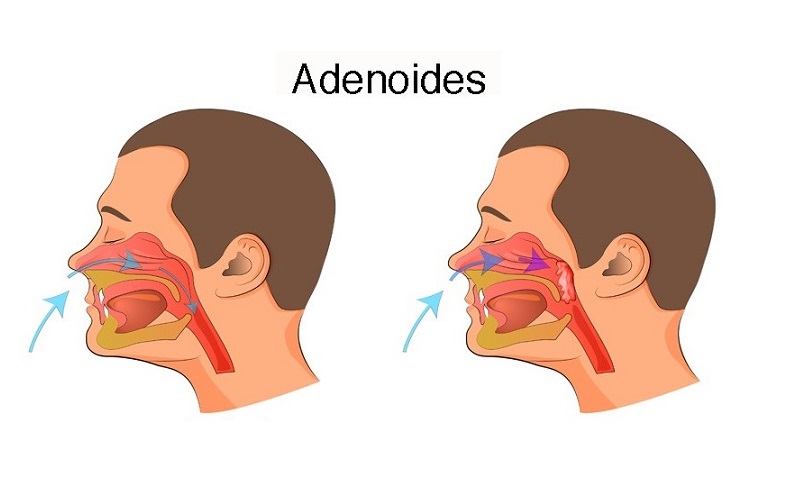Have you ever wondered how complex structures are inside of your throat? Aside from the throat enabling humans to project voice and ability to speak, the throat also plays a role in immunity. Have you ever realised when you start to have a cold or flu, you begin to have a sore throat? A sore throat and coughing are one of the signs that the body’s immune system is working. However, prolonged coughing or sore throat should be a concern and need to find doctors as this could indicate a serious underlying health issue. In this article, we will be focusing on adenoid problems and symptoms related to it.
Adenoids are lumps of tissue located at the junction of the nose and throat. Adenoids and tonsils work together to trap and destroy germs entering the mouth and nose. Thus, it is considered as part of the immune system. Typically, the adenoid enlarges during childhood around ages of 2 to 4 years old and then begins to shrink when they are around 5 to 8 years old. Eventually, the adenoid will fully shrink when a person reaches adulthood, sometimes already seen gone during teenage years.
Since adenoid is part of the immune system, problems relating to adenoid usually give signs of inflammation such as swelling or enlargement. This can happen both in children and adults (although adenoid in adults usually already regresses, but such enlargement may happen when infection hits). Symptoms of adenoid problems is according to the problems caused; this could be:
1- Difficulty to breathe through the nose causing mouth breathing
2- Snoring
3- Persistent congestion
4- Hearing problems
5- Bad breath
6- Dry mouth
7- Difficulty sleeping
8- Stop breathing for a few seconds and snore in between during sleep
9- Stuffy nose
10- Runny nose
11- Facial pain (feeling pain when certain point of the face is being pushed or pressured)
12- Mucus dripping down the throat (post-nasal drip)
13- Nasal voice quality (think of a sound made when you have cold, as if the voice being affected by the nose)
14- Coughing
Medical issues associated with adenoid problems include:
1- Enlarged adenoids- this can be due to adenoid already enlarged from birth, allergies, chronic infection.
2- Infected adenoids/adenoiditis- most commonly because virus, sometimes bacterial infection may occur such as from Streptococcus species.
3- Prolonged sinusitis- enlargement of adenoid in a long time can easily lead to chronic sinusitis.
4- Sleep apnoea- enlargement of adenoid and tonsil may block the airway and cause obstruction to the breathing system during sleep.
5- Ear infections- middle ear infections can be caused by the swollen adenoid that has been infected which travels up to the ears through a tube called the Eustachian tube connecting the ear middle and the back of the throat.
Adenoid problems can cause numerous problems and for a person to exactly know which disease they are having can be tricky as symptoms seem similar to one and another medical problem. Hence, it is important to get medical advice as soon as a person experiences symptoms as mentioned above or when they find their child exhibiting such symptoms. Even though children mostly have an enlarged adenoid, they rarely need treatment as the adenoid problems will go away when the adenoid shrinks. However, sometimes antibiotic treatment may be given when it is related to infection of the ear or the sinus as treating such infections will ultimately treat the adenoids. If a person experiences ear pain, treatment to reduce such discomfort will be given. Removal of adenoid or adenoidectomy may be offered if a person keeps having infections, often falls sick or when the adenoid is too large that it interferes with breathing especially during the night. Know about our Hajj Vaccination Package.





